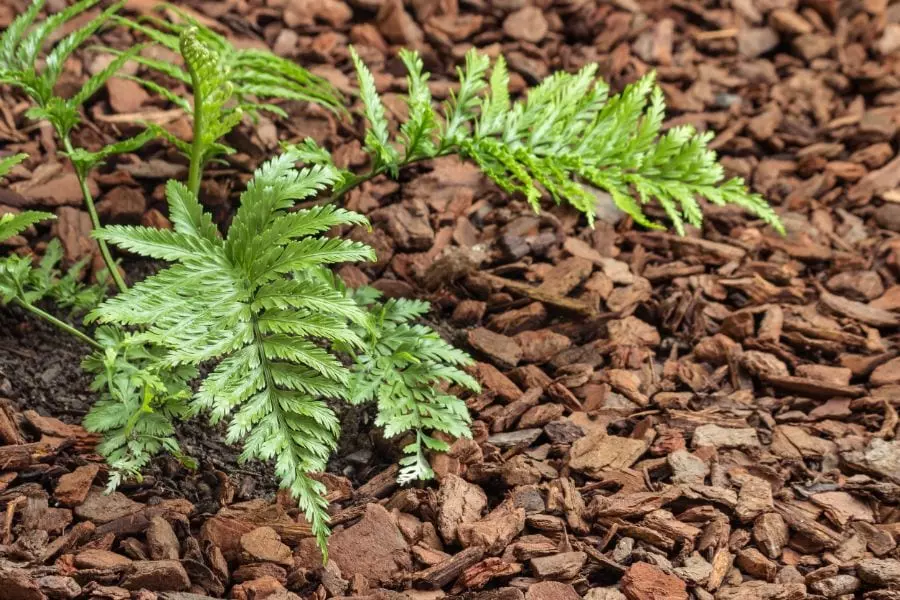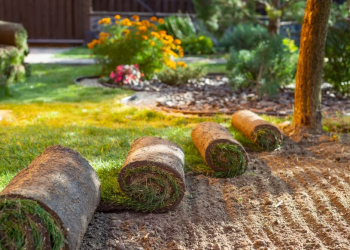Table of Contents
Gardening entails regular maintenance to keep your plants healthy and the space more beautiful. An essential part of maintenance includes getting rid of unwanted plants. Ferns are among the plants that are often considered unwanted.
While some ferns can beautify your garden with their delicate, lacy appearance, others may be invasive. When they grow abundantly in the garden, they spread and multiply quickly, affecting the growth of other plants.
Hence, knowing how to get rid of ferns in your garden is also an essential part of gardening.
But should you kill ferns? If so, how do you kill the unwanted plants? Read on to find out.
Should You Kill Ferns?
Several species of ferns are available. When you do not keep a check on the ferns in your garden, they multiply and soon wreak havoc. You must remove them before they begin to spore and spread, as they could be detrimental to the growth of your plants.
You can kill ferns to eliminate them from your garden and protect your plants. However, if you like the appearance of ferns in your garden, you can choose to keep a few and kill the rest.
Mark the spots where you wish to keep the ferns to ensure that you do not kill them accidentally.
How to Kill Ferns?
If you are trying to figure out how to get rid of ferns in your garden, you must be happy to know that there are several ways to kill them. You can also use natural remedies to ensure that you do not harm the soil and other plants during the process.
Boiling Water
An easy and cost-effective way to kill ferns is to use boiling water. Since you do not use any chemicals in the process, this is considered one of the safest ways to kill ferns. Start by assessing the ferns you want to get rid of and their sizes. The size mainly determines how much boiling water you need for the job.
For small and medium ferns, you usually require around 1 or 2 gallons of water. To kill the fern easily, you can use the boiling water treatment during the initial stages of their growth.
Pour the boiling water on the leaves and roots of the fern. The plants naturally die after a few days. If you are dealing with bigger and more stubborn ferns, pour boiling water twice to eliminate them altogether.
You must always take safety precautions to prevent burns and injuries. Be cautious throughout the process and use gloves.
Vinegar
White vinegar and industrial vinegar can be helpful to use against fern. Use it directly to ensure more effectiveness instead of diluting it. Take some vinegar in your spray bottle to spray it over the roots and leaves of the fern.
The plants usually wither within 1 or 2 days. Household vinegar possesses 5% of acetic acid that burns the fern leaves. You can apply it on a sunny day as the heat accelerates vinegar’s burning power.
Vinegar does not alter the soil composition, so you can use the space to plant other garden plants once you get rid of all the ferns.
Make sure you are careful while spraying vinegar. If you accidentally spray it on other garden plants, they will begin to wilt as well. Additionally, use protective gear while using vinegar. Though vinegar is an effective solution, it only lasts for a short period. You may have to do it again if it continues to grow.
Saltwater
Use saltwater to kill ferns in your garden. It acts as an effective herbicide. You can use either rock salt or table salt. Just dissolve it in water. The amount of saltwater you need depends on the ferns’ size. Small and medium ferns usually require around 1 or 2 gallons of water.
Pour the saltwater over the leaves and roots of the ferns. They tend to die within 2 – 3 days, sometimes more depending on how stubborn they are. However, you cannot plant a shrub in the area as the saltwater may make the space unsuitable.
Dig the Ferns Out
You can also kill the ferns by digging them out and decapitating them. However, you cannot tug at them and wrestle with them to yank the ferns out like you do for most weeds. It only spreads the spores, and numerous ferns soon appear in your garden.
Instead, you must remove the fronds or the leaf blades and leaf stalks before digging the ferns out. Then, dig deeper to remove the plants along with their roots. This technique not only kills ferns but also keeps new ferns from growing in the same space.








